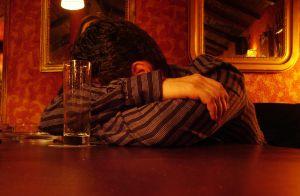The University of Otago, Christchurch, researchers are running the country's largest study to date on treating the combination of these two mental illnesses.
They found 58 per cent of participants have immediate relatives (e.g. mother, father, sibling or adult child) with depression and alcohol addiction – pointing to a likely genetic connection.
The two conditions are often treated in isolation, despite tens of thousands of New Zealanders suffering from both illnesses.
This is the first time in New Zealand extensive data on demographics, genetics and reaction to medication is being gathered on people with both these common illnesses.
It is also a leading-edge study internationally.
Christchurch investigator Dr Simon Adamson says depression is the ‘common cold’ of mental illness and alcohol is the most widely-abused substance.
"One in five New Zealand adults experiences a mood disorder at some time in their lives and one in eight has a substance use disorder. In alcohol and drug treatment settings over half are alcohol dependent and a third have a current mood disorder."
The TEAM (Treatment Evaluation for Alcohol and Mood) Study will treat more than 150 people from around the country with the anti-craving drug Naltrexone as well as anti-depressants for 12 weeks, with counselling also provided for a further 12 weeks.
Researchers have just done an initial analysis of data from the first 100 participants.
From this analysis they identified the strong genetic disposition between depression and alcohol addiction.
Participants were most likely to identify their mother as having experienced depression and their father as having experienced an alcohol or other drug problem. Families with higher rates of one disorder usually also experienced high rates of the other.
Geneticists will examine the influence of an individual's genes on how they respond to treatment.
Participants are being given either an anti-craving drug and an anti-depressant or just the anti-craving medication in combination with counselling.
Principal investigator, and head of the University of Otago's National Addiction Centre, Professor Doug Sellman says in New Zealand people with an alcohol use disorder are four times more likely to be depressed than people without this disorder.
TEAM is providing free treatment to people in the Bay of Islands, Whangarei, Auckland, Waikato, Nelson, Blenheim, Christchurch and Dunedin.

